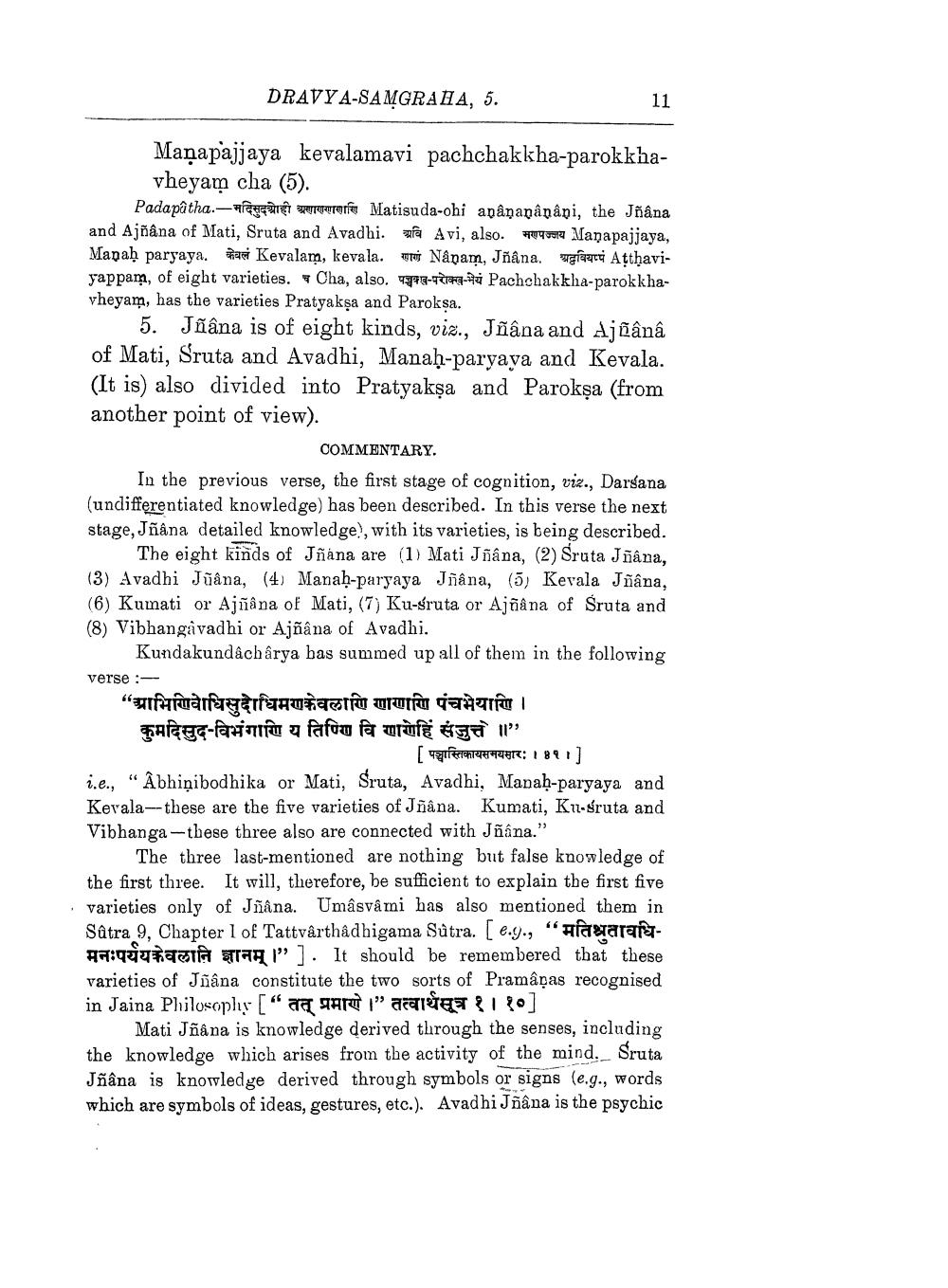________________
DRAVY A-SAMGRAHA, 5.
Maņapajjaya kevalamavi pachchakkha-parokkha
vheyam cha (5).
Pada pâtha.-regut perturorfa Matisuda-ohi apânapâpâni, the Jñâna and Ajñana of Mati, Sruta and Avadhi. a Avi, also. 412 Nanapajjaya, Mapaḥ paryaya. asi Kevalam, kevala. Nâpam, Jñana. grazcu Atthaviyappam, of eight varieties. Cha, also. 479-4249- Pachchakkha-parokkhavheyam, has the varieties Pratyakșa and Parokşa.
5. Jõâna is of eight kinds, viz., Jõâna and Ajpânâ of Mati, Sruta and Avadhi, Manah-paryaya and Kevala. (It is) also divided into Pratyakșa and Parokşa (from another point of view).
COMMENTARY. In the previous verse, the first stage of cognition, viz., Darsana (undifferentiated knowledge) has been described. In this verse the next stage, Jñâna detailed knowledge), with its varieties, is being described.
The eight kinds of Jñana are (1) Mati Jñana, (2) Sruta Jñâna, (3) Avadhi Jūâna, (4) Manah-paryaya Jñâna, (5) Kevala Jñana, (6) Kumati or Ajñana of Mati, (7) Ku-śruta or Ajna na of Śruta and (8) Vibhangåvadhi or Ajñâna of Avadhi.
Kundakundáchârya bas summed up all of them in the following verse :--
"आभिणिवाधिसदोधिमणकेवलाणि णणाणि पंचभेयाणि । कुमादिसुद-विभंगाणि य तिण्णि विणाणेहिं संजुत्ते ॥"
[querenterruera: 1 891] i.e., "Abhiņibodhika or Mati, Sruta, Avadhi, Manah-paryaya and Kevala--these are the five varieties of Jñana. Kumati, K 11-sruta and Vibhanga - these three also are connected with Jñana."
The three last-mentioned are nothing but false knowledge of the first three. It will, therefore, be sufficient to explain the first five · varieties only of Jñâna. Umâsvâmi has also mentioned them in Satra 9, Chapter 1 of Tattvarthâdhigama Sutra. [1.9., "Afanara #aqu in a " ]. It should be remembered that these varieties of Jñâna constitute the two sorts of Pramâņas recognised in Jaina Philosophy [“ a JATI” acarte 180]
Mati Jñana is knowledge derived through the senses, including the knowledge which arises from the activity of the mind. Sruta Jñâna is knowledge derived through symbols or signs (e.g., words which are symbols of ideas, gestures, etc.). Avadhi Jñâna is the psychic




